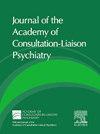C-L 病例会议:临终人格障碍患者的情绪失调与慢性重症之间的相互作用。
IF 2.5
4区 心理学
Q2 PSYCHIATRY
Journal of the Academy of Consultation-Liaison Psychiatry
Pub Date : 2025-01-01
DOI:10.1016/j.jaclp.2024.08.004
引用次数: 0
摘要
我们介绍了一例因心内膜炎就诊的患者,该患者随后经历了漫长而充满挑战的住院过程,其中大部分时间都在重症监护室(ICU)度过。在整个住院期间,患者的人格因素加上沟通障碍和重症病痛,导致其出现脱离、冲动、分裂、躁动和自杀等具有挑战性的行为。重症监护精神病学专家回顾了该病例及其关键要素,包括重症监护精神病学和重症监护病房患者药物治疗的原则;重症监护病房患者的沟通问题和相关的精神痛苦;对具有挑战性的患者进行主动咨询的益处;以及重症监护后综合征的构建。患有人格障碍的患者往往难以应对严重的内科疾病,从而导致具有挑战性的自我挫败行为。这种行为在重症监护中更加难以控制,因为病人脆弱的医疗状态取决于他们与医疗团队之间的顺利互动。我们将探讨如何通过与精神科咨询团队合作来减轻这些挑战。本文章由计算机程序翻译,如有差异,请以英文原文为准。
C-L Case Conference: The Interaction Between Emotional Dysregulation and Chronic Critical Illness in a Patient With a Terminal Personality Disorder
We present a case of a patient who presented for endocarditis and subsequently had a prolonged and challenging hospital course, with much of it spent in the intensive care unit (ICU). Throughout their hospitalization, personality factors, combined with impaired communication and pain in severe medical illness, led to challenging behaviors of disengagement, impulsivity, splitting, agitation, and suicidal statements. Experts in critical care psychiatry review the case and its key elements, including principles of critical care psychiatry and pharmacologic management of ICU patients; communication problems in ICU patients and associated psychiatric distress; the benefits of proactive consultation for challenging patients; and the construct of post-intensive care syndrome. Patients with personality disorders often struggle to cope with severe medical illness, leading to challenging, self-defeating behaviors. Such acts are even more difficult to manage in intensive care, where a patient's tenuous medical status depends on smooth interactions between them and the medical team. We address how these challenges may be mitigated in collaboration with a psychiatric consult team.
求助全文
通过发布文献求助,成功后即可免费获取论文全文。
去求助
来源期刊

Journal of the Academy of Consultation-Liaison Psychiatry
Psychology-Clinical Psychology
CiteScore
5.80
自引率
13.00%
发文量
378
审稿时长
50 days
 求助内容:
求助内容: 应助结果提醒方式:
应助结果提醒方式:


